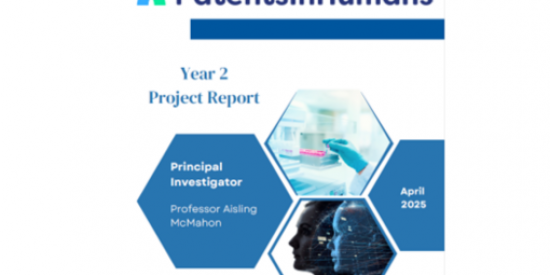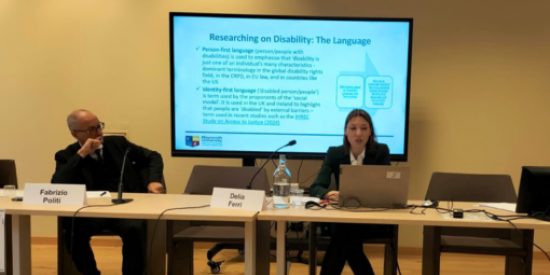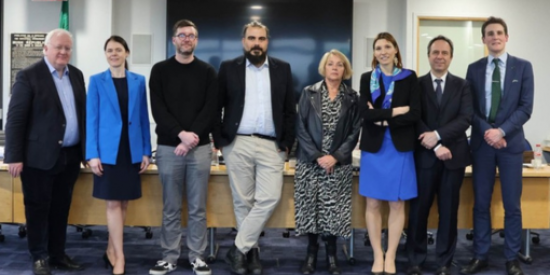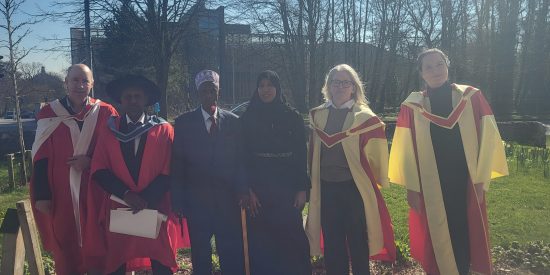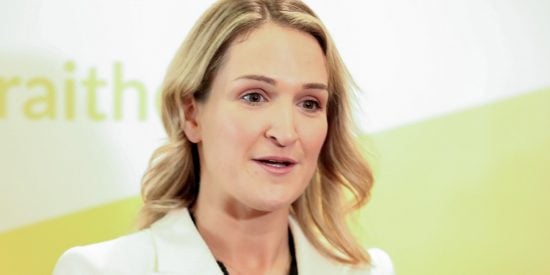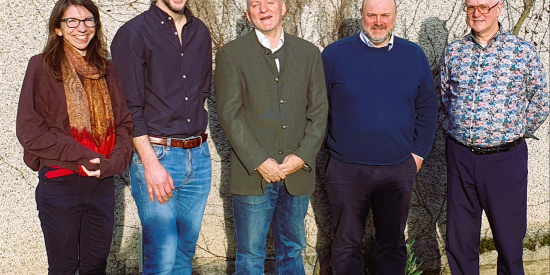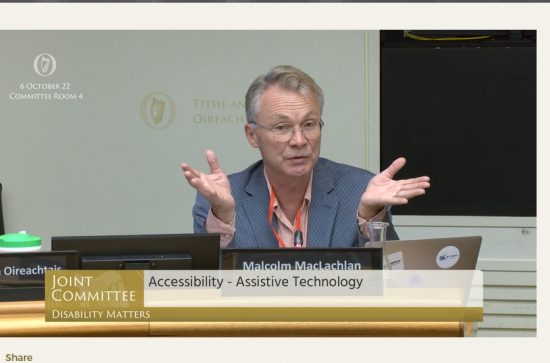
Assisting Living and Learning (ALL) Institute co-director Mac MacLachlan spoke to the Joint Committee on Disability Matters in the Oireachtas on behalf of Maynooth University this morning 6th October 2022.
Professor MacLachlan's opening statement:
Opening Statement of Mac MacLachlan
Accessibility – Assistive Technology
Committee on Disability Matters
Thursday 6 October 2022
Thank you for the invitation to appear before the Committee on Disability Matters. I have been asked here in my capacity as co-Director of the Assisting Living and Learning Institute – the ALL Institute - at Maynooth University and as Research and Innovation lead for the World Health Organization’s assistive technology programme.
Everybody should have a language – a way of understanding, of expressing, of thinking; of telling others what you need, of sharing pains, hopes, and joys; of meaning something. And of being part of and belonging to others - being able to commune, to be a part of a community. Language allows us to mean something and to matter. The ALL Institute at Maynooth University has been at the forefront of promoting the importance of assistive technologies for equitably achieving all of the Sustainable Development Goals and realising each of the substantive articles of the CRPD.
Globally, millions of people have no language – usually due to speech or hearing or vision difficulties, a combination of these, or other types of difficulties. The provision for “progressive realization” in the CRPD is recognition that very poorly resourced countries will take time to fully implement the convention. Ireland is one of the richest countries in the world and one of the technologically most advanced. There are huge opportunities for Ireland to show global leadership in this area, yet, ironically, in Ireland too, there are many people – children and adults - who lack the opportunity to communicate, to mean something, to matter.
Our challenges will not be fixed by tweaking, we need a new approach altogether, and this is exactly the time to develop it. With better policies, new structures, improved systems, more resources, better trained staff and – above all – stronger user participation, we can achieve improved services. Ireland has had an important role in shaping the increasing prioritization of assistive technology within the WHO over the last decade. Ireland was, for instance, one of the countries which sponsored the adoption of the priority Assistive Product List (APL) in the UN’s World Health Assembly in 2016, it was an Irish person who chaired the international consensus meeting that establish the first APL; and in 2022 it was An Taoiseach who was the prime minister chosen to launch the first Global Report on Assistive Products, and Minister Anne Rabbitte attended the launch in Geneva.
The Global Report makes several recommendations, some of which are particularly salient to us in Ireland: have an (integrated or stand lone) policy on AT - with associated budget; enlarge, diversify and improve workforce capacity on AT; increase public awareness of AT; invest in data and evidence-based policy; invest in research and enabling ecosystems; actively involve users of AT and their families. It also recommends AT being key in humanitarian responses and international cooperation – pointing to the priority that the Department of Foreign Affairs and Irish Aid should give to AT.
The Global Report mandates governments to act, embracing a rights-based approach, through putting AT users first, embracing co-design and the maker-movement; and radically democratizing access to and the development of services. Access to digital and assistive technologies must be part of the liberatory process of the human rights approach to disability. While appreciating the expertise and training of key professions, these professions must not form a bottle neck in access to services, they cannot be gatekeepers, but rather curators, supporters and facilitators for access to AT.
Ireland is recognized as the digital hub of Europe; we have an opportunity for Irish SMEs and multinationals to add-value to AT and AAC products and to develop new ones, both for Ireland and globally. There really is a win-win opportunity here- to create a step-change in our own AT services, to empower service users and to open new markets for Ireland Inc. Our current provision of services is an inherited patchwork of well-motivated but inequitable provision; a “post-code lottery”; where service users and service providers are frustrated and often feel alienated from decision-making. This must change.
Digital and AT are increasingly merging, presenting huge opportunities, but also challenges to inclusion, and so socially just models of governance need to be established before technologies gets out of sight of our ability to ensure they are put to good use – the ALL Institute in Maynooth recently published a paper on what we call Just Digital and discussion on this concept has already occurred with some government departments. There is a range of new European legislation which we need to be aligned with – including, European Accessibility Act, European Medical Device Regulation, European Digital Services Act, European Digital Markets Act.
In Ireland, the response to Covid-19 has produced a bounce in digital literacy with the game-changing potential to extend the reach of services and the participation of service users. It has also reinforced the value of direct human contact, of being together in one space. The ALL Institute at Maynooth University is leading the largest European Commission funded project to ever be led by an Irish University. It is called SHAPES – Smart & Healthy Ageing through People Engaging in Supportive Systems (SHAPES) – working across 14 European countries, with 21m Euro of funding. The projects starts with lived experience and then explores how an open source platform can provide access to individualized technologies that meet personal needs, maintaining people in their communities, keeping them out of hospital; very much in line with the ethos of Sláintecare. One of our partners in this project is the World Federation of the Deafblind, another is the European Union of the Deaf. Vision and hearing problems increase as people age, and in Ireland and Europe our population is aging - minority difficulties which were historically pushed to the margins of society, will become more central to our concerns. This is a good thing. By adopting principles of both universal design and being sensitive to individuals’ needs for reasonable accommodations, AAC and AT; many more people can be included, the centre can hold, and hold more firmly, the gyre need not widen but can bring in others from the margins too.
Some specific actions to achieve this would include new legislation on AT and AAC recognizing them as cross-cutting mediators of human rights and ensuring a more systematic and appropriately funded approach across sectors; development of an Assistive Product List for Ireland; supporting a centre of excellence in this area - bringing together service users, services providers, researchers, educators and industry. I commend this committee for addressing this important issue today and hope that we may collectively grasp an opportunity to make real change, here and now.


